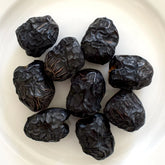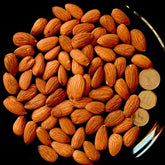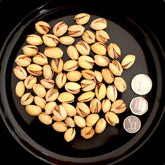Popular Products
Ajwa Dates
- From Dhs. 20.00
Dhs. 23.00- From Dhs. 20.00
- Unit price
- / per
Almond Jumbo
- From Dhs. 13.00
Dhs. 15.00- From Dhs. 13.00
- Unit price
- / per
Pistachio Nuts Medium
- From Dhs. 20.00
Dhs. 23.00- From Dhs. 20.00
- Unit price
- / per
Popular Products
Ajwa Dates
- From Dhs. 20.00
Dhs. 23.00- From Dhs. 20.00
- Unit price
- / per
Almond Jumbo
- From Dhs. 13.00
Dhs. 15.00- From Dhs. 13.00
- Unit price
- / per
Pistachio Nuts Medium
- From Dhs. 20.00
Dhs. 23.00- From Dhs. 20.00
- Unit price
- / per
DryFruits.AE
DUBAI DRY FRUITS ONLINE SHOP
- From Dhs. 18.00
Dhs. 21.00- From Dhs. 18.00
- Unit price
- / per
- From Dhs. 13.00
Dhs. 15.00- From Dhs. 13.00
- Unit price
- / per
- From Dhs. 15.00
Dhs. 18.00- From Dhs. 15.00
- Unit price
- / per
- From Dhs. 12.00
Dhs. 16.00- From Dhs. 12.00
- Unit price
- / per
- From Dhs. 20.00
Dhs. 23.00- From Dhs. 20.00
- Unit price
- / per
- From Dhs. 20.00
Dhs. 23.00- From Dhs. 20.00
- Unit price
- / per
- From Dhs. 19.00
Dhs. 22.00- From Dhs. 19.00
- Unit price
- / per
- From Dhs. 20.00
Dhs. 23.00- From Dhs. 20.00
- Unit price
- / per
- From Dhs. 23.00
Dhs. 25.00- From Dhs. 23.00
- Unit price
- / per
- From Dhs. 34.00
Dhs. 8.00- From Dhs. 34.00
- Unit price
- / per
- From Dhs. 48.00
Dhs. 75.00- From Dhs. 48.00
- Unit price
- / per
- From Dhs. 23.00
Dhs. 28.00- From Dhs. 23.00
- Unit price
- / per
- From Dhs. 17.00
Dhs. 19.00- From Dhs. 17.00
- Unit price
- / per
- From Dhs. 8.00
Dhs. 11.00- From Dhs. 8.00
- Unit price
- / per
- From Dhs. 13.00
Dhs. 20.00- From Dhs. 13.00
- Unit price
- / per
- From Dhs. 25.00
Dhs. 30.00- From Dhs. 25.00
- Unit price
- / per
- From Dhs. 15.00
Dhs. 17.00- From Dhs. 15.00
- Unit price
- / per
- From Dhs. 12.00
Dhs. 16.00- From Dhs. 12.00
- Unit price
- / per
- From Dhs. 25.00
Dhs. 28.00- From Dhs. 25.00
- Unit price
- / per
- From Dhs. 19.00
Dhs. 21.00- From Dhs. 19.00
- Unit price
- / per
New Arrivals
View All- From Dhs. 8.00
Dhs. 10.00- From Dhs. 8.00
- Unit price
- / per
- From Dhs. 8.00
Dhs. 10.00- From Dhs. 8.00
- Unit price
- / per
- From Dhs. 25.00
Dhs. 28.00- From Dhs. 25.00
- Unit price
- / per
- From Dhs. 5.00
Dhs. 7.00- From Dhs. 5.00
- Unit price
- / per
- From Dhs. 8.00
Dhs. 9.00- From Dhs. 8.00
- Unit price
- / per
- From Dhs. 7.00
Dhs. 9.00- From Dhs. 7.00
- Unit price
- / per
- From Dhs. 6.00
Dhs. 8.00- From Dhs. 6.00
- Unit price
- / per
- From Dhs. 9.00
Dhs. 11.00- From Dhs. 9.00
- Unit price
- / per
- From Dhs. 7.00
Dhs. 9.00- From Dhs. 7.00
- Unit price
- / per
- From Dhs. 7.00
Dhs. 9.00- From Dhs. 7.00
- Unit price
- / per
- From Dhs. 9.00
Dhs. 11.00- From Dhs. 9.00
- Unit price
- / per
- From Dhs. 14.00
Dhs. 16.00- From Dhs. 14.00
- Unit price
- / per
- From Dhs. 12.00
Dhs. 15.00- From Dhs. 12.00
- Unit price
- / per
- From Dhs. 19.00
Dhs. 22.00- From Dhs. 19.00
- Unit price
- / per
- From Dhs. 14.00
Dhs. 16.00- From Dhs. 14.00
- Unit price
- / per
- From Dhs. 8.00
Dhs. 9.00- From Dhs. 8.00
- Unit price
- / per
Let customers speak for us
from 322 reviewsnice test and fresh god pruducts . i like its i order this biryani masla order again and again

Coconuts slice is fresh organic and good test stesfied

Nice test good quality and very fast delivery I order again

I am satisfied this Compny . Good service fast delivery and nutmeg jaiful is good quality

This monosdum is nice test and fresh oi order again and again this website dryfruits

Trustworthy business, attached with him more then an year

Orange is very good test and fresh dry I like too much good and very fast delivery next time I order again and again

It’s very good and fast delivery . Items is very fresh and good I orders again this Compny

Red chili powder I purchased this Compny . Is good fresh and very fast delivery

I satisfied thus chilli red powder . Very fresh and pure . I like . I orders again this website. Very suitable price . And very fast delivery

I like it garam Masallah . It’s fresh and good and very fast delivery. I order again and again

I used Garam masala it is too much good Quality and nice 👌 l order again and again shop now

It’s nice the red chili poweder . It’s fresh and good very fast delivery . I purchasing again and again frome this

Frequently asked questions
Dried berries, such as cranberries and raspberries, tend to have lower sugar content compared to other dried fruits like raisins or dates. They offer a tangy, flavorful option with less sugar, making them a smart choice for those watching their intake.
Dried fruits are packed with essential nutrients like fiber, vitamins, and minerals, promoting overall health. They provide a concentrated source of energy, aiding in sustained vitality throughout the day. Additionally, their antioxidants help combat oxidative stress, supporting heart health and boosting the immune system. Incorporating dried fruits into your diet can contribute to better digestion, improved bone health, and enhanced skin radiance.
While dried fruits are nutritious, they are also calorie-dense due to their concentrated sugars. In moderation, they can be part of a healthy weight loss diet, offering a satisfying alternative to sugary snacks. However, it's important to watch portion sizes, as overconsumption can lead to excess calorie intake. Pairing dried fruits with protein or fiber-rich foods can help control hunger and support weight loss goals effectively.
In today's fast-paced world, convenience is key. Whether you're a health-conscious individual seeking nutritious snacks or simply looking to add a touch of elegance to your culinary creations, the search for quality dry fruits and nuts shouldn't be a hassle. That's where DryFruits.ae comes in – your one-stop-shop for premium nuts and dry fruits, conveniently available at your fingertips.
Dry fruits offer a powerhouse of nutrients, including vitamins, minerals, and antioxidants, promoting overall health and well-being. With their natural sweetness and convenient portability, they make for a perfect snack choice to boost energy levels and satisfy cravings. Incorporating dry fruits into your diet can support digestion, improve heart health, and enhance skin radiance.
DryFruits.ae offers exquisite dry fruits gift packs, perfect for all occasions and seasons. Delight your loved ones with organic and natural flavors, ensuring both happiness and health in every bite.
Dubai's dry fruits market is thriving, and DryFruits.ae is at the forefront with its online store offering a diverse selection from around the world. Customers can enjoy premium quality and freshness, conveniently delivered to their doorstep, making healthy snacking easier than ever in the bustling city.
The answer to whether dried fruit is okay for diabetics is not a simple yes or no. While dried fruit can be a healthy snack option due to its high fiber and nutrient content, it is also high in natural sugars. This means that it can cause blood sugar levels to spike if eaten in large amounts. Therefore, it is important for diabetics to monitor their portion sizes and choose dried fruit options that are lower in sugar, such as dried apricots or prunes. It is also recommended to pair dried fruit with a source of protein or healthy fat to slow down the absorption of sugar into the bloodstream. As always, it's best to consult with a healthcare professional before making any significant changes to your diet.
Dried apricots can be a good snack option for diabetics as they are lower in sugar compared to some other dried fruits. They are also a good source of fiber, vitamins, and minerals. However, as with all foods, portion size is important. It's best to enjoy dried apricots in moderation and pair them with a source of protein or healthy fat to slow down the absorption of sugar into the bloodstream. It's always a good idea to consult with a healthcare professional before making any significant changes to your diet.
Most dried fruits are high in natural sugars, making them a less ideal choice for those following a strict ketogenic diet. However, there are some dried fruit options that are lower in sugar and can be enjoyed in moderation. These include dried apricots, prunes, and berries such as cranberries or raspberries. It's important to keep in mind that even these lower sugar options can still contain a significant amount of carbohydrates, so portion control is key. Additionally, it's always a good idea to check the nutrition label and ingredient list to ensure that there are no added sugars or other ingredients that may not fit within your diet plan.
Dried fruits are a healthy snack option, but some are higher in calories than others. If you're looking for the lowest calorie dried fruit, your best bets are apricots, cranberries, and strawberries. These fruits have around 100 calories per 1/4 cup serving. Other good options include cherries, peaches, and plums, which have around 120 calories per 1/4 cup serving. It's important to keep portion sizes in mind when snacking on dried fruit, as they can be easy to overeat due to their small size and concentrated sweetness.
What's New
Which Dry Fruits Should You Eat Daily?
2024 Eid holiday
Ramadan 2024 in Dubai
how many calories in 100g almonds
- Choosing a selection results in a full page refresh.










